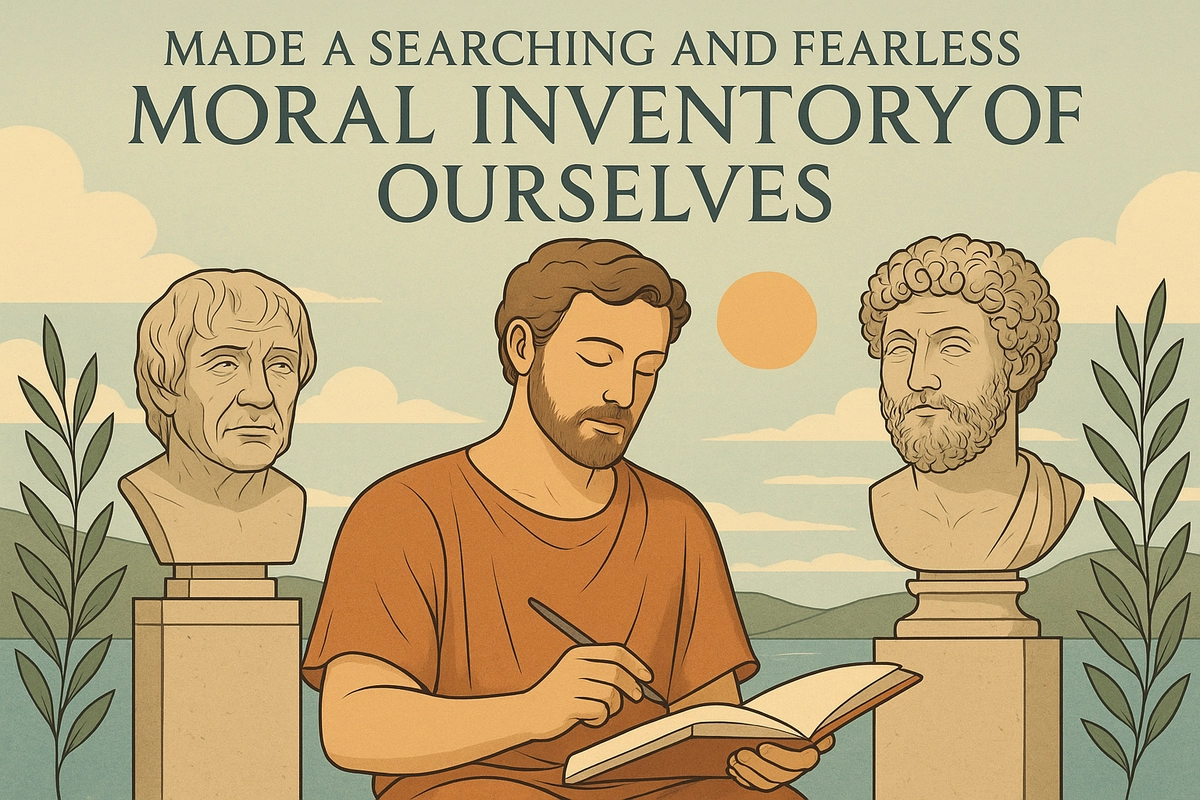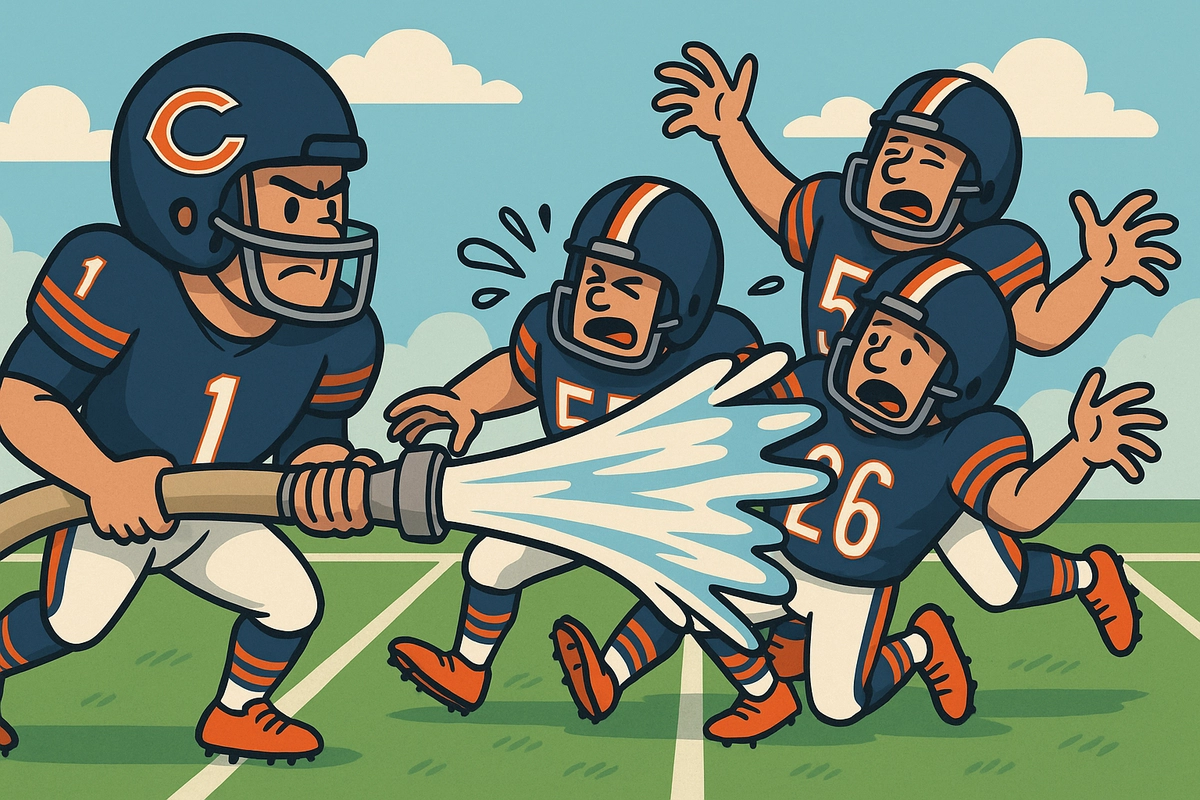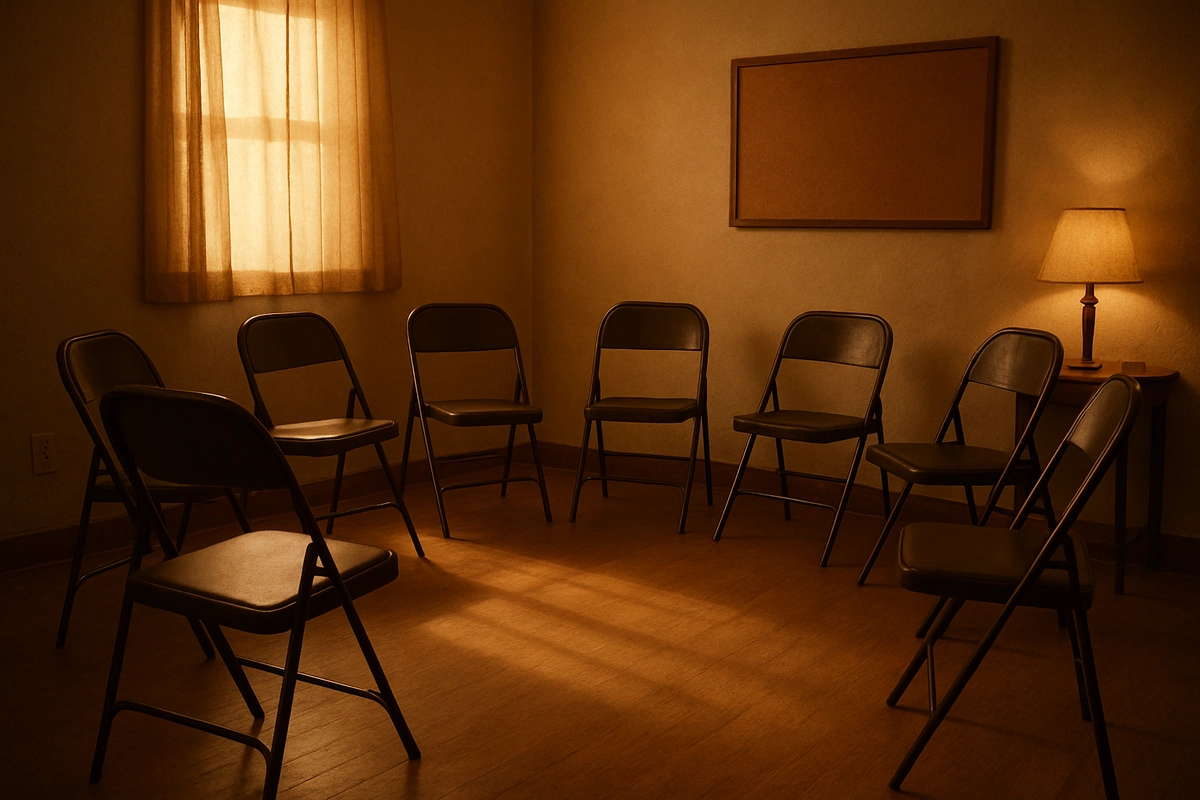Were I asked to name a Step that had the largest impact on me, I would naturally go to the First Step; acceptance changed my life. Closely behind it would be the Fourth Step, probably the most feared of the lot.
“Made a searching and fearless moral inventory of ourselves.”
I never advocate for “running up the steps,” as I've heard the comparison drawn—you fall on your face! Yet, if there’s a set I frequently see newcomers rush through, it’s the first three. I’ve known people who thought they could handle the first three steps in one night, only to be stopped dead in their tracks at Step Four.
Step Four calls for deep introspection. Bill W. adapted this step almost entirely from the Oxford Group and its principle of self-examination. It was a core tenet of their beliefs and progression towards becoming better Christians. When I first read it, what troubled me wasn’t the exercise itself; it was one word: “moral.”
Considering this step from a virtue ethics perspective, the word “moral” presents a dilemma, as it carries perceptions imposed by others. Morals aren’t innate; they're taught. What one's morals are is entirely subjective, shaped by upbringing and environment. Virtue, however, is intrinsic, based on harmony and balance.
These two terms—moral and virtue—are often mistakenly used interchangeably. To a Stoic, applying "moral" here is misplaced and contradictory. Why would I embrace a life of accepting what I cannot change, only to confine myself to external moral prescriptions?
This conflict is why many approach Step Four with dread. When one has lived trapped by addiction, there are many things of which they aren’t proud. Addiction forces choices a virtuous person would not make. Now, confronted with the label “moral,” the exercise risks becoming self-punishment.
We come to the program beaten, broken, and full of shame. We work the first three steps, humbling ourselves: admitting powerlessness, acknowledging the need for external help, and surrendering our will to something greater. After navigating that gauntlet, we’re suddenly asked to dive headlong back into the abyss of shame we sought to escape and document it all—often dictated rigidly by our sponsor. I've even known sponsors who insist it must be handwritten, claiming typing is insufficient. I’d guess many who leave the program do so at Step Four.
Seneca’s Guidance
So, how have I found this step so powerful and beautiful? Seneca taught me to look at it differently:
“It is better to learn from the mistakes of others rather than your own; yet if we must learn from our own experience, let us at least draw wisdom from past errors instead of being tormented by them.” (Inspired by Seneca, On the Shortness of Life)
This sentence summarizes two of the most important lessons I've learned in sobriety.
I Selfishly Guard My Sobriety
When someone has a relapse, it’s never good news—but it's powerful motivation for my own sobriety. It’s incredibly brave for someone to return to a meeting after a relapse, admitting they've "slipped" (a term I personally avoid).
Witnessing the pain of someone in relapse has profoundly strengthened my resolve. Though addiction rarely whispers in my ear these days, when it does, memories of those who've relapsed flood my mind. I never want to be the person who returns, announcing a relapse. Thus, the mistakes others have made become a powerful deterrent. Seneca is right: others' mistakes teach me more vividly than my own. Relapsing means restarting from square one, focused solely on re-committing. When someone else makes the mistake, I witness firsthand the power and value of my sobriety. They've done the “research and development” for me.
Drawing Wisdom, Not Torment, from the Past
Approaching my Fourth Step, I embraced Seneca’s wisdom. My task was to glean wisdom from mistakes—not wallow in them.
As I began filling in my spreadsheet (to the chagrin of sponsors who demand pencils and paper), it became easier, column by column, just as the Big Book suggests. Before long, the exercise evolved naturally, pausing only occasionally for reflection. The process needn't be arduous; its power lies inherently within.
That power was magnified when I started reviewing my Fourth Step across the rows. Patterns emerged, behaviors linked, minor wrongs clearly building towards larger ones. This exercise was devoid of shame; it was reconciliation. Upon completion, my perspective shifted. I didn’t excuse my past—I understood it, reconciled with it, and moved forward.
Marcus Aurelius further advises:
“All that you’ve done before, or failed to do, is of no account. The past is dead and gone. Why carry yesterday’s regrets on your back? Today is the first day of the rest of your life. Live now according to your principles.”
My first sponsor echoed this sentiment at my initial meeting: “Welcome to the best day of the rest of your life.” Marcus Aurelius seemed to be with me all along. The Fourth Step isn't about inventorying regret; it's about releasing it.
The Power of Virtue
Returning to the wording of Step Four, it’s unfortunate that "moral" was inserted into an otherwise profound pursuit. Its inclusion diminishes, rather than amplifies, the step's true power. How many have abandoned sobriety, fearing this “moral” reckoning?
For clarity and power, I suggest replacing “moral” with “personal,” “complete,” or removing the word altogether. Freeing the step from external moral judgment transforms penance into an open invitation to learn from past mistakes, unearthing wisdom. The First Step gave me back my life; the Fourth Step revealed precisely what I was reclaiming.






Comments